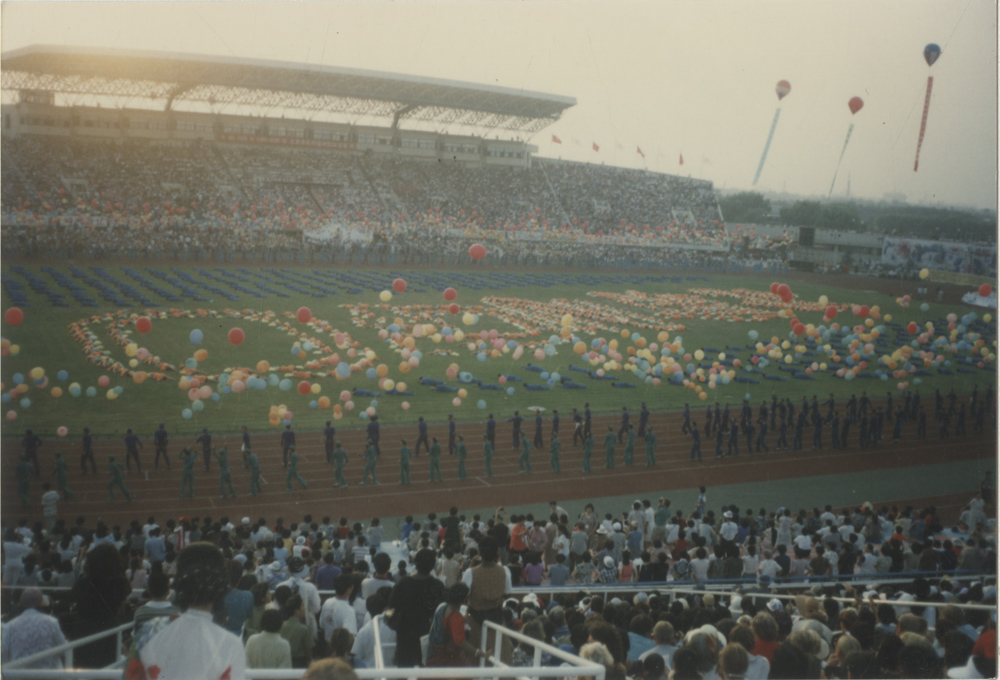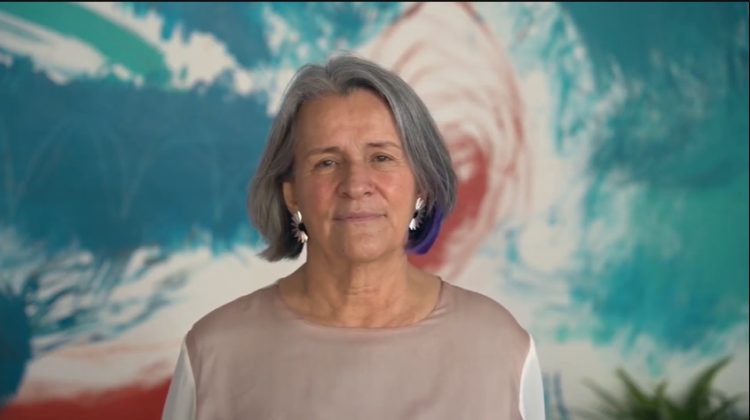HelpAge International is launching a campaign to honour the 30th anniversary of the historic 1995 Beijing Conference by spotlighting remarkable women who attended and helped shape the global gender equality agenda.
Feminism in an age of backlash
Thirty years ago, the 1995 Beijing Conference marked a turning point in the global fight for gender equality. It was a time of hope, determination, and solidarity. For Beatriz Quintero, a Colombian feminist who attended the conference, it was also an unforgettable journey of learning and discovery.
What was the atmosphere like at the Conference?
The Beijing Conference was more than a political event – it was a cultural and human experience. I discovered China, where everything felt unfamiliar, even the shift from “Pekín” to “Beijing.”
I remember the diversity of women, united in purpose despite so many differences. Latin American feminists arrived well-prepared; our voices were strengthened by previous regional meetings. Encounters with global feminists fostered lifelong solidarity and revealed shared struggles.
The conference demonstrated how global connections could drive change, amplifying regional demands for gender equality on an international stage. These experiences shaped my understanding of feminism as a powerful, collective force for justice.

What were your first impressions of the Conference?
The scale of the conference was overwhelming. With so many women present, speaking countless languages, it felt like a modern-day Tower of Babel.
Many first-time attendees, including me, struggled with the formalities of a UN meeting. Frustration arose from not always being able to speak, to demonstrate, to be heard. Yet, the magnitude of the event – knowing we were part of something bigger – was exhilarating.
At the time, I carried an almost naive optimism. I believed the momentum from Beijing could transform the world; dismantling patriarchy more swiftly than history has allowed.
In hindsight, I recognise the complexities of social change. Progress has been real, but slow. Feminists still struggle to make their ideas mainstream, and gender equality remains an unfinished project.
How has life changed for women globally in the past 30 years?
There has been undeniable progress made since 1995: greater awareness of women’s rights, increased opportunities, and stronger representation. However, there is a growing backlash. Anti-rights groups are not just resisting change, they are actively trying to roll back the progress made.
One of the greatest threats to gender equality today is the attack on democratic institutions. Feminists must remain vigilant, because only in democratic societies can the fight for rights continue to move forward.
And what about older women? Do you think their rights are being protected?
Despite the progress, one group remains largely overlooked: older women. Their experiences and needs are still not adequately included in gender equality agendas. Stereotypes about ageing lead to discrimination, and in the Global South, older women are often the poorest and most at-risk. Addressing these gaps requires making their voices central to decision-making spaces.
How have the challenges faced by women evolved since 1995, and how do older and younger activists collaborate today to advance women’s rights?
Feminism today is different from 1995. Then, the focus was on fundamental rights – equal pay, access to education, ending gender-based violence. Today’s feminists have grown up with those battles already fought, but they face new challenges: gender identity, online harassment, ecofeminism.
The key challenges ahead include:
- Maintaining unity despite ideological diversity
- Combating misinformation and anti-feminist narratives
- Ensuring intersectionality so that feminism includes all women
- Resisting the global conservative backlash
- Educating and raising awareness to dismantle stereotypes.
The relationship between generations must be one of mutual learning. Older feminists bring historical knowledge and experience, while younger activists bring new strategies and perspectives.
Has the Beijing Platform delivered on its promises?
The Beijing Declaration and Platform for Action was a powerful tool, but implementation has been inconsistent. As with many international commitments, real progress depends on political will. In Colombia, for example, compliance has been minimal.
Are you more optimistic or less optimistic about women’s rights 30 years on?
Despite setbacks, I remain hopeful. I see feminism as a force that has undeniably shaped a better world. While the road to equality is long, feminists have already changed history. And with continued solidarity, they will shape the future too.
 Beatriz Quintero García is a Colombian feminist activist and member of the Red Nacional de Mujeres. She has dedicated her career to advocating for women’s human rights, political participation, and freedom from violence. Beatriz played a key role in the founding of both the Red Nacional de Mujeres and the Mesa por la Vida y la Salud de las Mujeres. She has influenced landmark legal reforms, including Colombia’s Law 1257 on violence against women and the decriminalisation of abortion.
Beatriz Quintero García is a Colombian feminist activist and member of the Red Nacional de Mujeres. She has dedicated her career to advocating for women’s human rights, political participation, and freedom from violence. Beatriz played a key role in the founding of both the Red Nacional de Mujeres and the Mesa por la Vida y la Salud de las Mujeres. She has influenced landmark legal reforms, including Colombia’s Law 1257 on violence against women and the decriminalisation of abortion.
Beatriz has also been instrumental in integrating gender perspectives into Colombia’s peace processes, including negotiations with the Revolutionary Armed Forces of Colombia (FARC) and the National Liberation Army (ELN).
